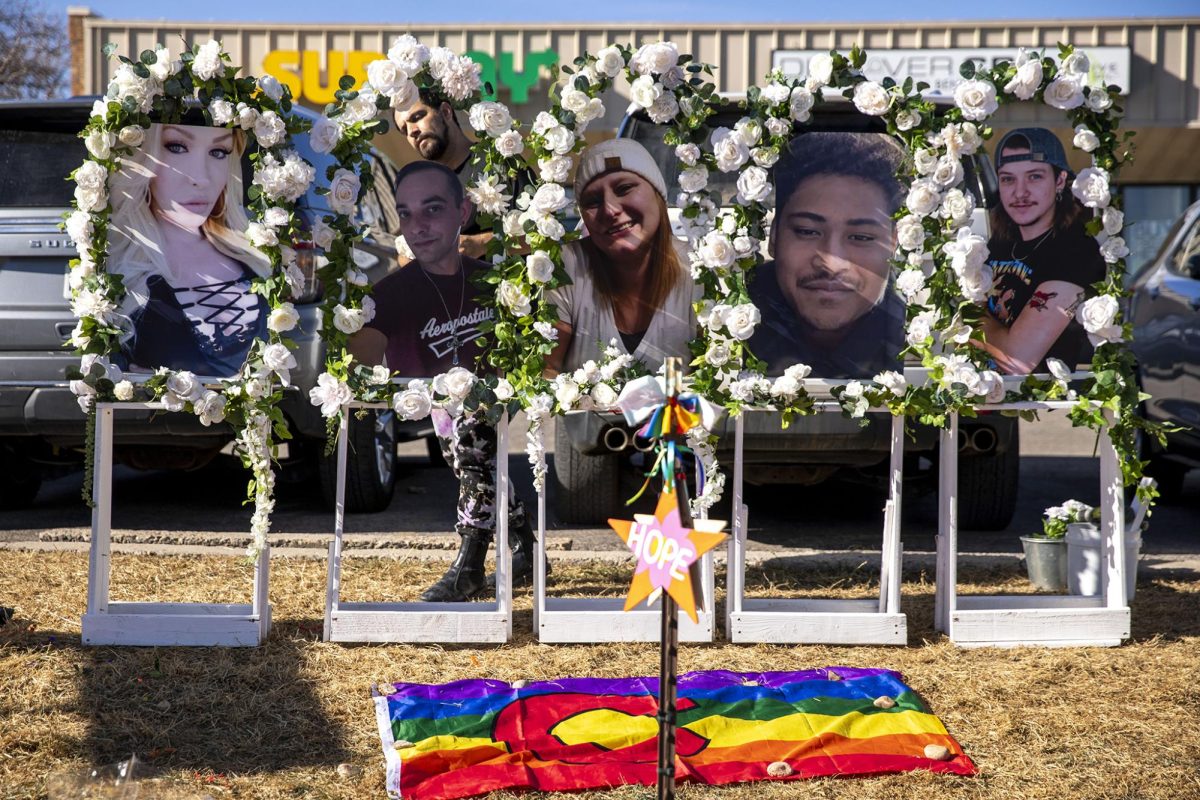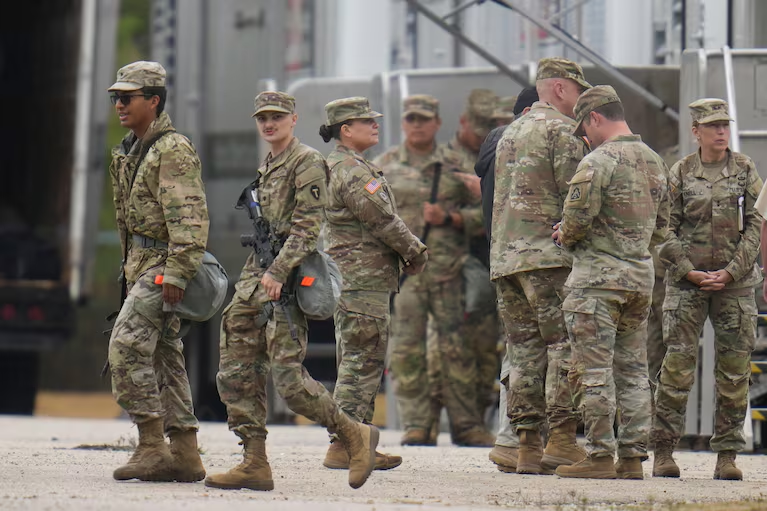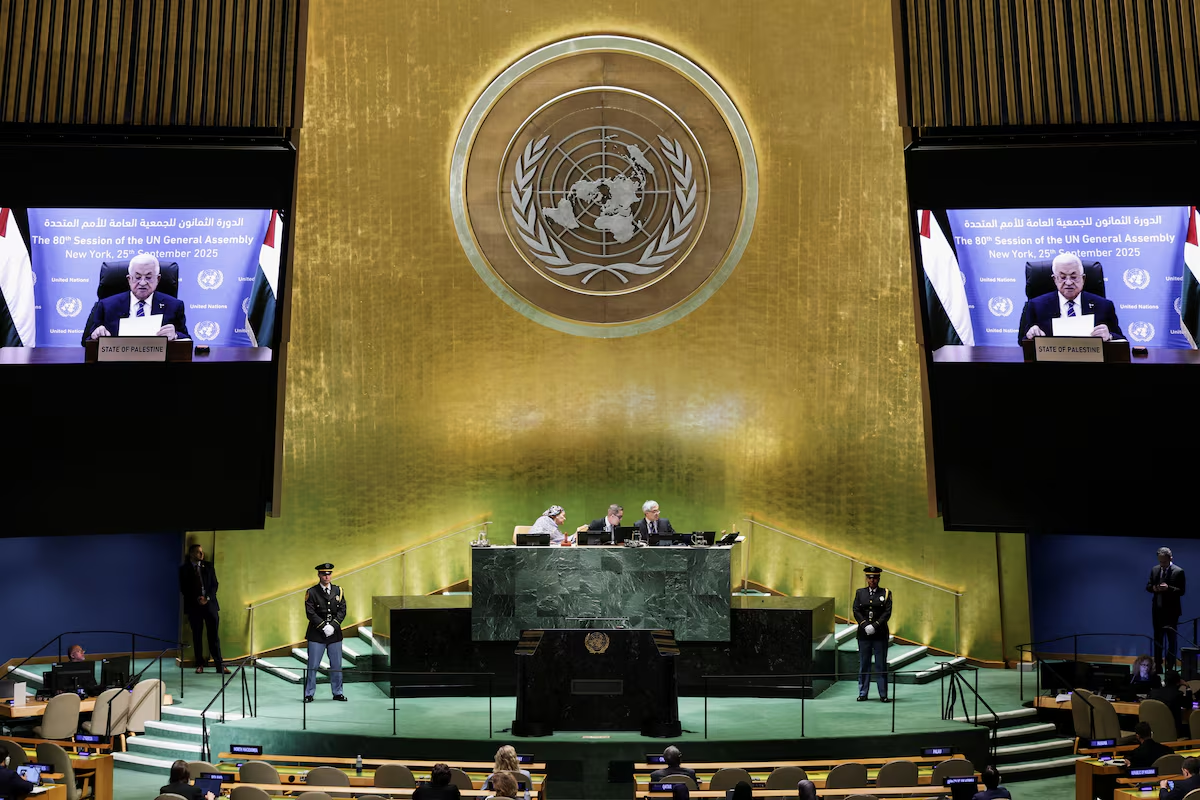The mass shooter of an LGBTQ+ nightclub in Colorado Springs who killed five people has pleaded guilty to 50 hate crime charges in a federal court. These charges come after the assailant was convicted of five counts of murder and forty-six counts of attempted murder.
The hate crime charges may be a surprise to some people because the shooter identifies as nonbinary.
A nonbinary person has a gender identity that is not exclusively male or female. Nonbinary individuals can have many different gender identities with different pronouns such as “they/them” or nonbinary individuals may not identify with any gender.
The shooter’s nonbinary identity has been questioned by those following the case for several reasons, with the primary one being that they took on the identity after the shooting. This has led many to feel that the identity was chosen disingenuously.
The shooter’s identity has led some to question whether a nonbinary person could be charged with committing hate crimes against a group they identify with.
According to the Associated Press, a person may be charged with hate crimes against people from the same group as they identify with because of the language of hate crime laws. Regardless of the authenticity of the shooter’s identity, a person can be motivated to hate people of the same group as themselves.
This shooting speaks to a broader problem of hate crimes and fearmongering against LGBTQ+ people in the United States.
Hate against LGBTQ+ people has always been an issue. Unfortunately, the problem has grown worse in recent years. In 2022, hate crimes against the LGBTQ+ community based on sexual orientation rose by 13.8% since 2021 and attacks based on gender identity rose by 32.9% since 2021. The FBI crime statistics report showed 1,947 attacks based on sexual orientation in 2022 which was up from 1,711 attacks in 2021.
There will be instances of hate crimes that are not reported; so, the number of attacks on LGBTQ+ people is higher than the data suggests. This can be due to people not reporting the crimes committed against them. It could also be due to states and cities not pressing charges for hate crimes.
The primary reason for the recent rise in hate crimes against the LGBTQ+ community is the rise in anti-LGBTQ+ politicians whose rhetoric and legislation villainize the LGBTQ+ community. In 2023, the U.S saw a sharp uptick in anti-LGBTQ+ legislation, with over 520 broadly anti-LGBTQ+ bills introduced in state legislatures and 220 bills that specifically target transgender and nonbinary people, with 70 anti-LGBTQ+ laws passing that year according to the Human Rights Campaign.
This legislation takes the form of bans on gender-affirming care for transgender youth, bans on drag performances, sex and gender education bans and more. Most legislation has targeted young people in some way, either by banning books or other information that would make them aware of LGBTQ+ people or that would affirm the gender of transgender youth.
These bans serve the primary purpose of creating a narrative that being LGBTQ+ is an inherent threat to children and, thus, that members of the LGBTQ+ community must be kept away from minors.
These bans also help to create a narrative that minors cannot be LGBTQ+. These bans suggest that anyone under 18 whose identity is not cis-gendered and heterosexual, has been corrupted by LGBTQ+ people and their allies.
These stereotypes are very harmful to LGBTQ+ people, including minors who are trying to understand themselves and are in a susceptible position to marginalization. Rhetoric and legislation that targets a group of people will marginalize them and provide moral justification to those who disparage the LGBTQ+ community.
In light of the contemporary and historical challenges facing the LGBTQ+ community, the public ought to question whether it is acceptable for politicians to fearmonger about the LGBTQ+ community and to create legislation that further marginalizes the community.










yousef • Jan 24, 2024 at 10:57 AM
Most people didnt care about what you did, who you were, or what your sexual appetites were. once videos and reporting came out of teachers and administrators teaching kids sexually objectionable content and books in libraries describing pornographic sexual acts people started paying attention. pile on that hospitals (Yes UM in Ann Arbor too) castrating confused little boys and you ignite a powder keg.
If you had not pushed the envelope and come after our children we wouldnt have cared in the slightest. This movement had to try and push onto children their vision of what human sexuality is contrary to the vision many parents have of what it ought to be.
The sentiment youre seeing is being driven by a parental desire to protect our children from harm. Parents will stop and nothing short of killing us to protect our children. Unless you plan on killing us this counter movement will not stop until we are satisfied our children will be safe.
yousef • Jan 24, 2024 at 3:17 PM
For clarity UM follows WPATHs guidelines standards of care. WPATHs recommendations involve chemical and/or physical castration of adolescent boys as well as sterilization of boys and girls.